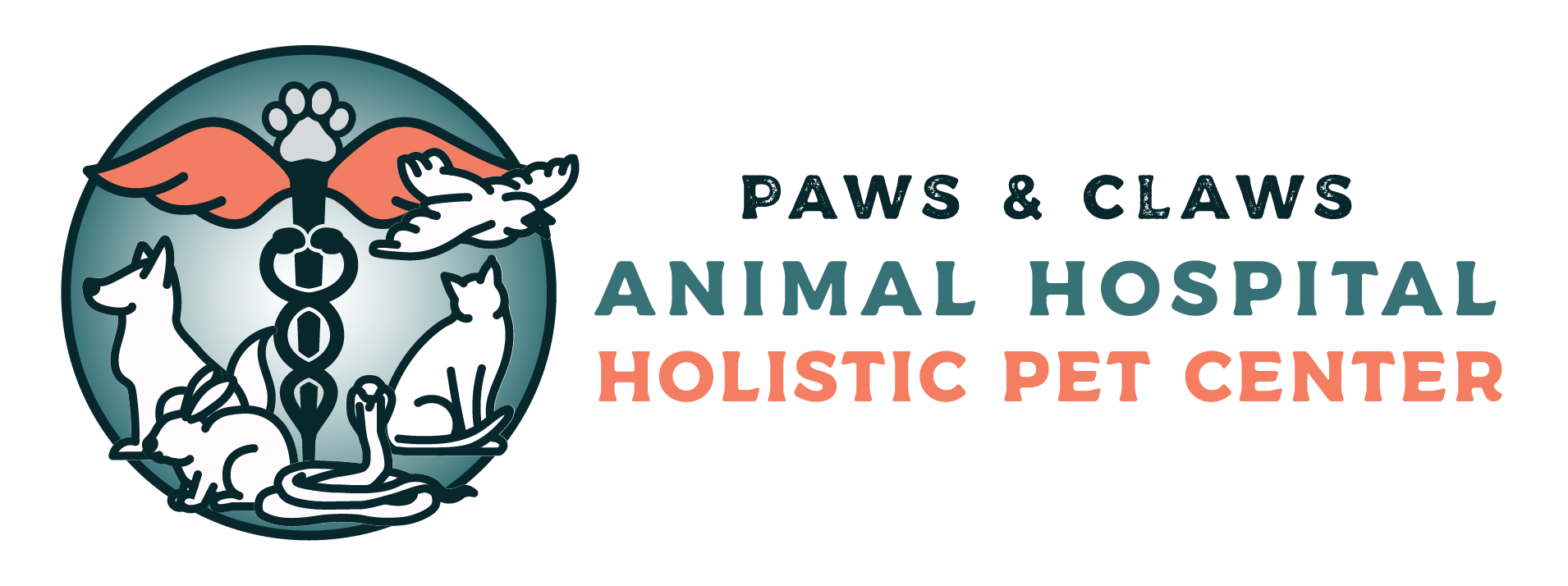Most of us take our bones for granted – until we break one or develop a painful condition like arthritis or osteoporosis. We also tend not to worry about bone problems in dogs, but the fact is, musculoskeletal problems, especially arthritis and bone cancer, are among the most common problems seen in canines.
Osteoarthritis (Arthritis)
Osteoarthritis is the most common bone problem in dogs. As dogs age, inflammation develops due to constant wear and tear on the shock-absorbing protective cartilage covering the ends of the bones. The worn cartilage allows the underlying bones to come into contact with one another, causing pain and stiffness. While this is usually thought of as a big breed problem, it occurs in all breeds as they age. Clinical signs include stiffness when moving around and getting up and down, as well as lameness following exercise. Radiographs (x-rays, best done under sedation) reveal the inflammatory changes in the joints.
Conventional medicines such as NSAIDs can be helpful but have side effects when used long term. Natural remedies should be the main therapy for dogs with arthritis and can include acupuncture, cold laser therapy, herbs, homeopathy, fatty acids, antioxidants, joint supplements, and stem cell therapy. Weight loss is critical for overweight dogs.
Osteosarcoma (Bone Cancer)
Osteosarcoma is also often seen in dogs, usually middle-aged to older large breeds such as retrievers and especially Rottweilers, which have a genetic predisposition. Clinical signs are similar to dogs with arthritis, and radiographs typically help differentiate the two conditions.
Conventional therapies include surgery (usually amputation of the affected limb), followed by chemotherapy. Radiation may also be helpful in dogs who do not receive limb amputation to control pain. Natural therapies to support the immune system include herbs such as astragalus and green tea, homeopathics, autosanguis therapy, stem cell therapy, vitamin D, and fish oil, and can often extend the lives of dogs with osteosarcoma.
Risk Factors
- While all dog breeds can develop bone problems, the larger ones are particularly prone to these conditions. The exact cause is unknown, but both genetics and environment can play a role.
- Dogs with bone problems such as hip dysplasia can pass on the genes causing this common problem to their puppies.
- Dogs that are over-exercised, or puppies pushed to grow too quickly, can also develop problems with their bones and joints.
- Chronic inflammation, which can arise from feeding low-quality diets or repeatedly vaccinating, can cause arthritis and other inflammatory conditions.
- Regardless of the size or weight of the dog, most will develop arthritis as they age.
Medications and Alternative Therapies
Conventional medications for bone disease usually consist of NSAIDs and other pain-relieving medications. While these can be effective when used for a short period, they can cause side effects, including GI ulcers, kidney disease, liver disease, and further worsening of the damaged cartilage.
Natural therapies are preferred for mild acute issues and long term control of pain and inflammation in dogs with arthritis and bone cancer. They can not only serve as a treatment for bone problems but also often slow down the progression of bone and joint diseases.
- Joint supplements that contain glucosamine, chondroitin, MSM, green-lipped mussel, and hyaluronic acid are effective at relieving pain and inflammation and healing damaged cartilage.
- Homeopathics such as arnica and hypericum can support the bones, assist in healing from injury, and reduce pain. Herbs such as white willow bark, from which aspirin was originally made, can also be effective as natural pain killers.
- Physical therapies, including chiropractic, acupuncture, massage, and cold laser therapy help cartilage and bone healing while reducing pain and inflammation.
- Newer therapies such as stem cell treatment (derived from the dog’s own body fat or blood cells) are also helpful in reducing pain and inflammation and encouraging healing.
Preventing Problems
- Feed them a natural balanced diet.
- Avoid long term use of drugs like antacids, which may leach calcium from the bones.
- Keep their teeth cleaned (this usually means regular professional cleanings from your veterinarian) to reduce inflammation that may cause bone or joint problems.
- Give them regular exercise – it keeps bones strong, as well as the tissues that surround the bones.
- Avoid excessive vaccination – it may cause inflammation and even directly affect cartilage. This practice should be avoided in dogs with chronic bone diseases.
Bone problems of any kind can be very painful and have a profound impact on a dog’s quality of life. By giving your companion a healthy lifestyle and educating yourself about his risk factors, you’ll significantly reduce his chances of being disabled by these conditions.
